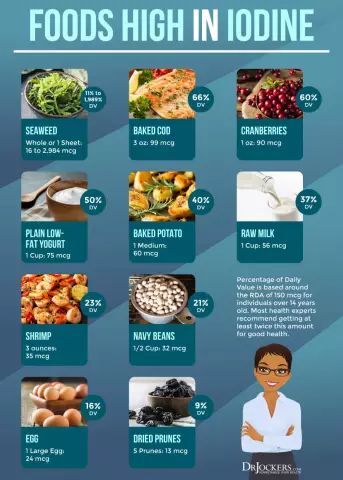- Author Rachel Wainwright wainwright@abchealthonline.com.
- Public 2023-12-15 07:39.
- Last modified 2025-11-02 20:14.
Chronic glomerulonephritis
Brief description of the disease

Chronic glomerulonephritis is a bilateral allergic kidney disease that is infectious. During the development of the disease, the nephrons, the renal structures that filter urine, are damaged. Chronic glomerulonephritis, the symptoms of which most often manifest themselves due to the progression of the acute form of the disease, can also develop as a primary chronic process. The mechanism of renal tissue damage is not fully understood, but there is no doubt that the main cause of numerous complications is the lack of adequate treatment.
Forms of chronic glomerulonephritis:
Currently, there are 4 forms of glomerulonephritis:
- latent - the presence of protein in the urine, short-term increases in blood pressure;
- hypertensive - constantly high blood pressure;
- nephrotic - a significant amount of protein in the urine, swelling of the extremities. Chronic glomerulonephritis of this form is most common in children;
- mixed - characterized by a combination of features of two or more forms.
Chronic glomerulonephritis - symptoms and clinical picture
Swelling of the extremities, hematuria, arterial hypertension - these are the main symptoms that manifest themselves glomerulonephritis. The treatment of the chronic form and the symptoms of the disease are somewhat similar to the acute form, but they also have their own distinctive features. In particular, the study of urine reveals a significant decrease in its density, and specific formations - granular cylinders - are found in the liquid. Among the characteristic symptoms of the disease, one can note rapid fatigue, high blood pressure, shortness of breath with minor physical exertion and a rapid heartbeat. With nephrotic glomerulonephritis, blood pressure does not exceed the norm, but the swelling is much more pronounced.
As the tissue gradually dies off, the patient develops renal eclampsia, which manifests itself in vomiting, headaches, convulsions and loss of consciousness. Chronic glomerulonephritis, the treatment of which is carried out with impairments or is absent altogether, provokes the appearance of uremia. This disease is associated with the pollution of the human body with nitrogenous toxins, which are not excreted in the urine in time due to violations in the functioning of the kidneys.
In severe stages of the disease, the condition of patients worsens. Chronic glomerulonephritis leads to muscle twitching, periodic loss of consciousness, dry tongue. In addition, a persistent smell of urine is felt from a person, especially from the mouth, as urea begins to be released through the pores of the body and the mucous membrane of the tongue. In some cases, uremia lowers visual acuity and affects the central nervous system, which, in turn, is expressed in a person's drowsiness and nervous seizures.
Chronic glomerulonephritis - treatment of the disease

The basic principles of treatment of the chronic form almost completely repeat the set of measures shown in the acute form. The patient is prescribed a strict diet and bed rest. In a state of rest, a person must be at least 10-12 hours a day. To prevent the spread of the disease, it is necessary to exclude hypothermia of the body, wear warmer clothes and take care of buying warm, waterproof shoes. With chronic glomerulonephritis, any physical activity is excluded.
The diet is based on limiting the amount of table salt entering the body, taking vitamins and temporarily avoiding food rich in protein. In the case of high blood pressure, the patient is prescribed antihypertensive drugs, as well as corticosteroids in combination with hypothiazide and lasix. During acute attacks of kidney disorders, it is permissible to use bloodletting from a vein (no more than 500 ml of blood). Such patients should be under the vigilant supervision of doctors to prevent new attacks.
With uremia, the patient is again shown bed rest and food containing a minimum amount of protein. It is better to eat foods rich in carbohydrates. As for the drinking regimen. If chronic glomerulonephritis has not led to significant impairment of kidney function, it is useful for the patient to give sweetened lemon water, weak red root tea, and blackcurrant juice. Table salt will also have a positive effect on the treatment process, since the patient loses a large amount of sodium chloride with vomiting.
Since urea is excreted through the skin with uremia, it is necessary to constantly take care of the skin. Preventive measures are also taken against the formation of pressure sores.
YouTube video related to the article:
The information is generalized and provided for informational purposes only. At the first sign of illness, see your doctor. Self-medication is hazardous to health!






